beginner ?
System
Posts: 2,511 admin
I have no experience with solar, but have a panel which was apparently used shipping cars. (VW) Max power 3.2 w, voltage at max power 18.8, current at max power 170 mA.
I have been using it in my fish house, (on the ice) and unplugging it when I leave. Question is, can I leave it plugged in all the time without diodes or controllers (I have only read on this subject), or should I order something?
It would save running the generator to get a complete charge after using lights and fan if I can get the system right.
Appreciate any help; Thanks, Bob
I have been using it in my fish house, (on the ice) and unplugging it when I leave. Question is, can I leave it plugged in all the time without diodes or controllers (I have only read on this subject), or should I order something?
It would save running the generator to get a complete charge after using lights and fan if I can get the system right.
Appreciate any help; Thanks, Bob
Comments
-
Re: beginner ?I have no experience with solar, but have a panel which was apparently used shipping cars. (VW) Max power 3.2 w, voltage at max power 18.8, current at max power 170 mA.
I have been using it in my fish house, (on the ice) and unplugging it when I leave. Question is, can I leave it plugged in all the time without diodes or controllers (I have only read on this subject), or should I order something?
It would save running the generator to get a complete charge after using lights and fan if I can get the system right.
Appreciate any help; Thanks, Bob
You should get a small charge controller. It would keep your battery at peak charge
and not over-charge it.
I'm using 3 of these.. With three 5~10W panels.
http://www.ramsond.com/proddetail.php?prod=SUNSHIELD&cat=SOLAR%20PANEL
At $20 shipped, they are a pretty good deal (IMHO).. 8)
Test day.. All three units were good out of the box.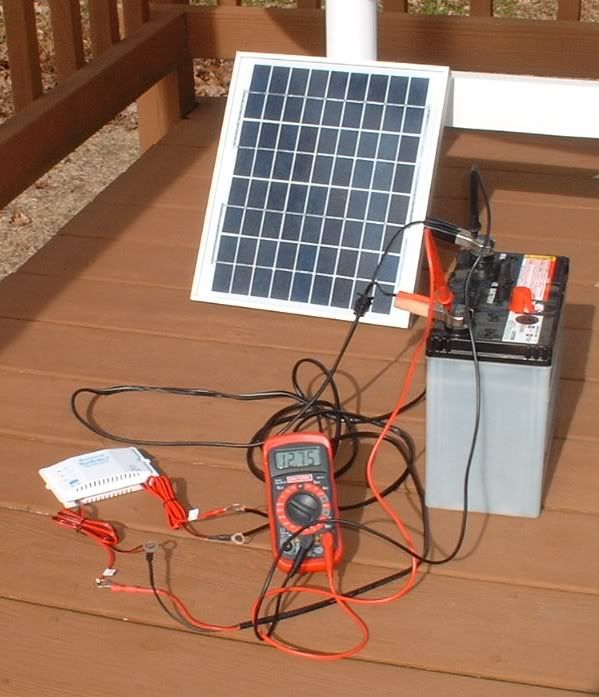
I'm using one to power the tracker motor on my 500w tracker array and the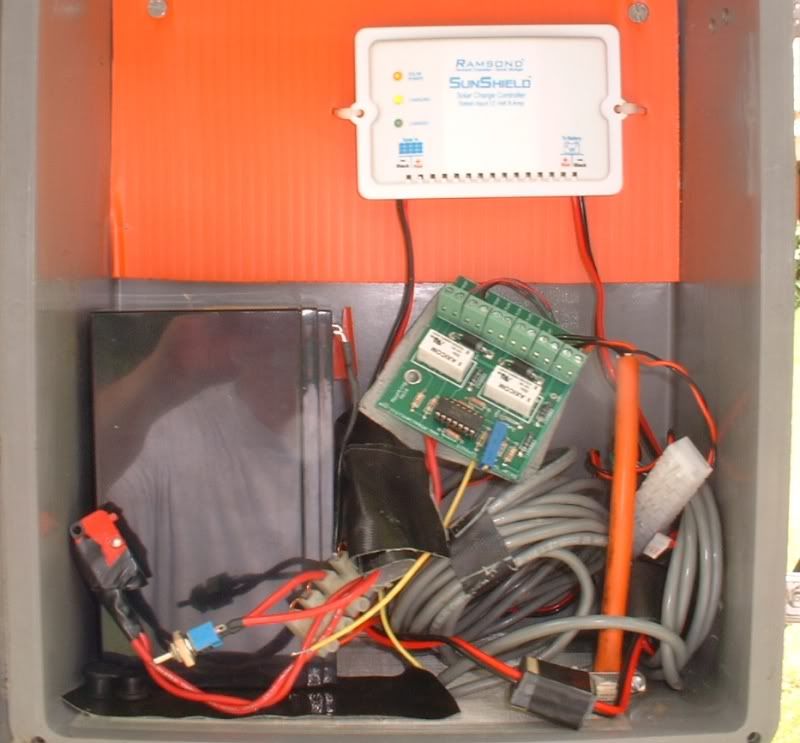
other two are in the basement. One for the bedroom reading lamp and
the other for my radios in the ham shack.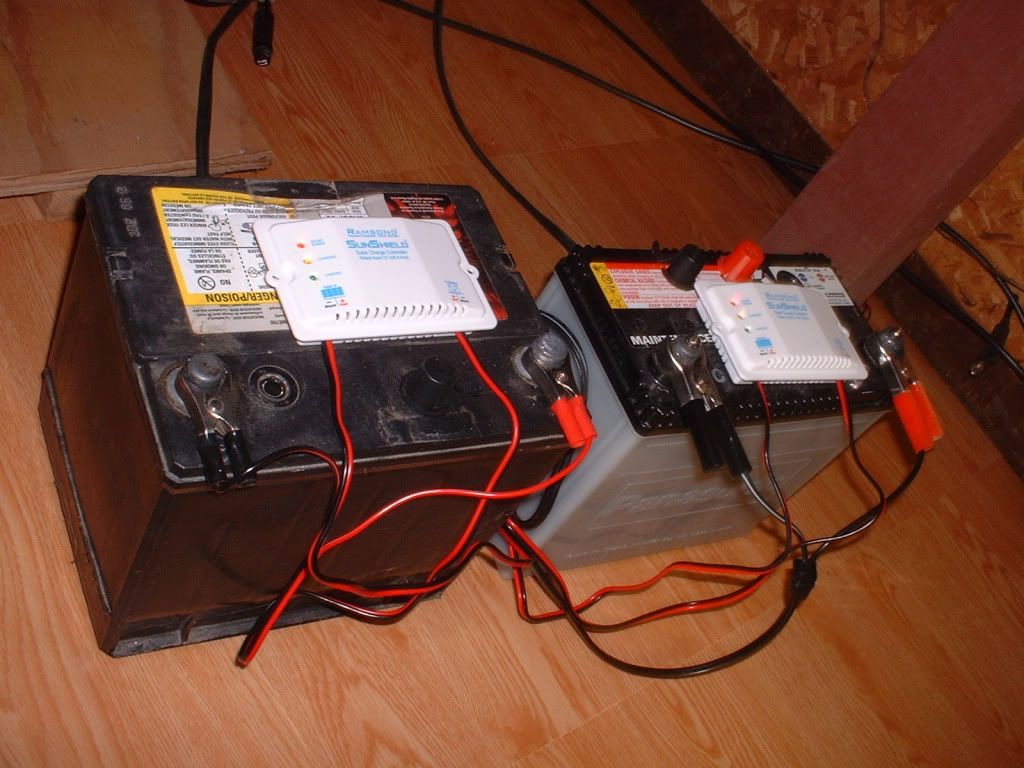
-
Re: beginner ?
There is no reasonable way that a 3 watt panel will ever overcharge a 12 volt battery. At best it will keep up with self discharge.
3 watts might put out ~ .2 amps under ideal circumstances. -
Re: beginner ?
that is an interesting controller. i am guessing it to be a linear regulator, but so what as the price is low and it may fit some applications well. one does have to realize that it is for 12v batteries only and 12v pvs too as the 24v max input would be in reference to the voc and many 12v pvs have voc ratings up in that neighborhood so check on that pv spec before considering that little controller. -
Re: beginner ?
They say it's "microprocessor controlled" and it might even employ something
similar to PWM when the sun is weak. Hard to say without scoping it.
The spec says you can use a 120w PV and the charge power is up to 80w.
That would seem to say it's likely a switched output, rather than linear.
When the green LED comes on (fully charged), it doesn't flicker off-and-on,
it snaps onto green and stays there. Until some load is added.
I was surprised a few times when the charger+ 5W of PV provided enough power
to move the tracking array while the battery was disconnected.
It was moving really slowly, but it was moving..
When I didn't want it moving.. LOL!
I purchased these because I wasn't sure that those little 5-10 watt panels
were large enough to do the job. So, I wanted to be able to upgrade the
PV to at least 80 watts of PV.
I was wrong about the little UL PV panels. I've never had a low battery
on the tracker. The ex-Fios battery is always ready, even at -2 deg F.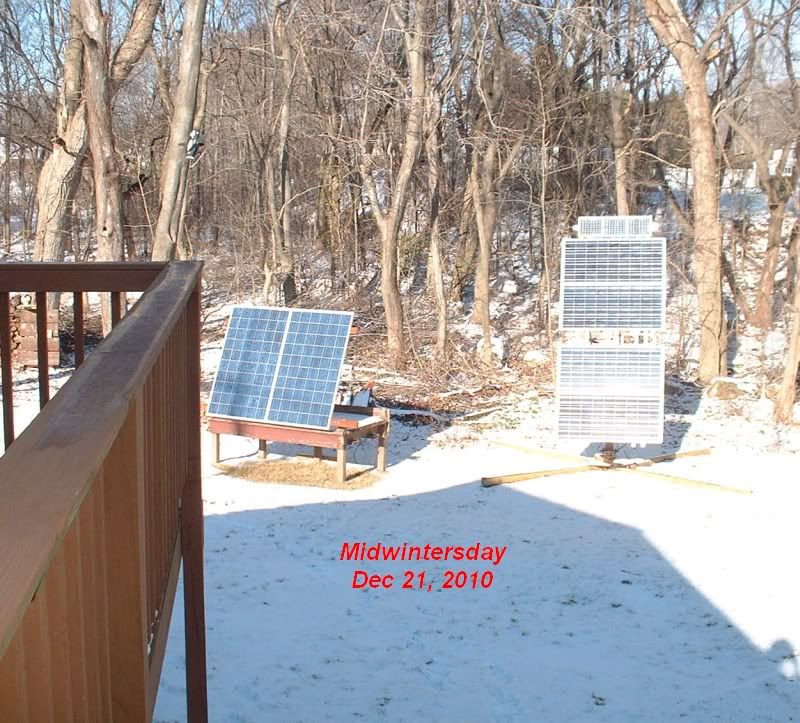
Two old car batteries in the basement are staying charged. Even after being
used regularly during our strangely enduring snowy season..
These chargers might not be good on panels that have a higher open voltage,
but it only cost $19.99 to find out. :roll: -
Re: beginner ?
good points, but no matter as it is cheap and if it works well there are small applications that i'm sure many would find it to be a good match for. -
Re: beginner ?
Well, you know, there's microprocessors and then there's microprocessors. Some of them are pretty stupid.They say it's "microprocessor controlled" and it might even employ something
similar to PWM when the sun is weak. Hard to say without scoping it. -
Re: beginner ?Well, you know, there's microprocessors and then there's microprocessors. Some of them are pretty stupid.
Well, it this case, there does not seem to be a uP chip..
First, I looked at the output with a scope. Clean as can be..
Then I got out a screwdriver..
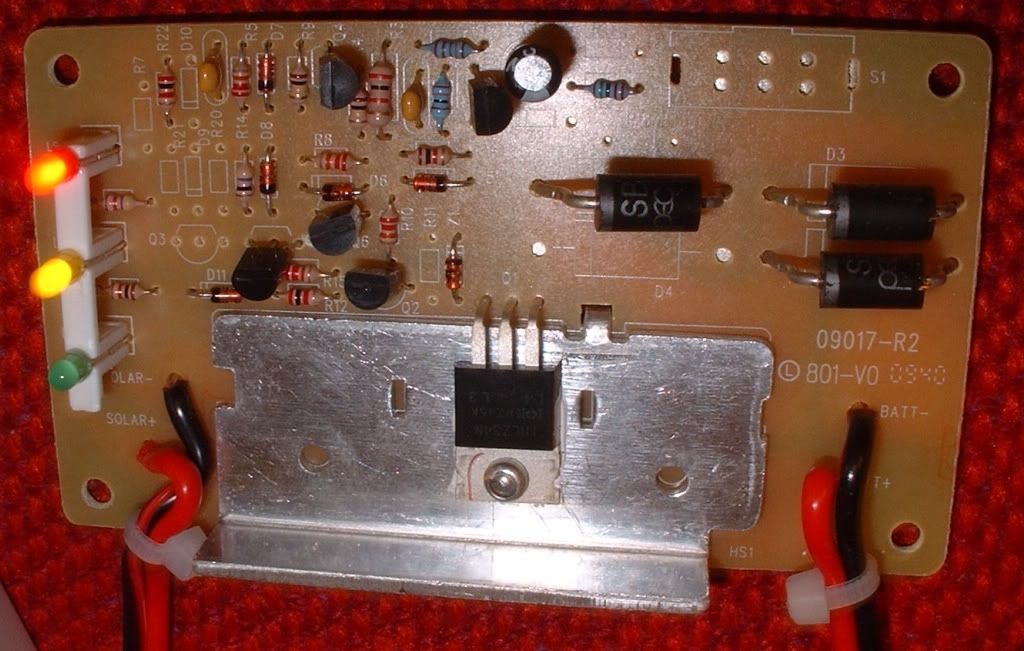
"Nearly a decade of advanced research, design and engineering have delivered to the market the most sophisticated solar charge controller in the world. This microprocessor controlled charge controller is extremely compact, light-weight and durable. Through its highly advanced microprocessor system, the Ramsond SunShield constantly monitors and regulates the voltage and current from the solar panel to the battery. "
LOL!!! What a line of BS!!
Anyways, I have to admit, I had expected to see a little 8 pin dip package somewhere in there.. Nope..
I'm glad these things actually work okay! (and I got one of them for free).
Since, you can probably get an actual PWM charger for another $10.. -
Re: beginner ?
can you make out the markings on q1? if i miss my guess that is most likely a 3 terminal ic regulator.
i'll take that back as there's no power transistor then to take 8a of current if that's an ic regulator. -
Re: beginner ?
Hey! Look at all those blank component spots! They've left half the parts out!
Might as well claim 60 years of research and development, as you could go all the way back to the first transistor ...
Categories
- All Categories
- 234 Forum & Website
- 142 Solar Forum News and Announcements
- 1.4K Solar News, Reviews, & Product Announcements
- 200 Solar Information links & sources, event announcements
- 901 Solar Product Reviews & Opinions
- 256 Solar Skeptics, Hype, & Scams Corner
- 22.5K Solar Electric Power, Wind Power & Balance of System
- 3.5K General Solar Power Topics
- 6.7K Solar Beginners Corner
- 1K PV Installers Forum - NEC, Wiring, Installation
- 2.1K Advanced Solar Electric Technical Forum
- 5.6K Off Grid Solar & Battery Systems
- 430 Caravan, Recreational Vehicle, and Marine Power Systems
- 1.1K Grid Tie and Grid Interactive Systems
- 656 Solar Water Pumping
- 817 Wind Power Generation
- 624 Energy Use & Conservation
- 624 Discussion Forums/Café
- 316 In the Weeds--Member's Choice
- 75 Construction
- 125 New Battery Technologies
- 108 Old Battery Tech Discussions
- 3.8K Solar News - Automatic Feed
- 3.8K Solar Energy News RSS Feed
